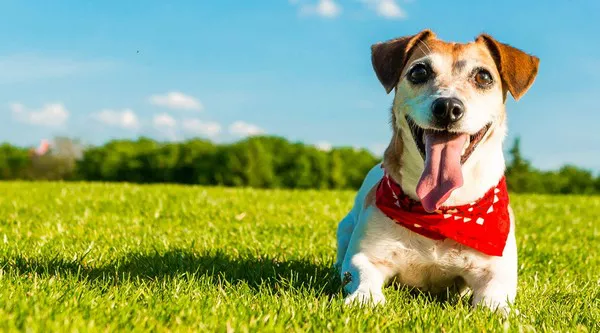As the final days of May approach, Norwich’s Town Clerk, Lily Trajman, assumes the responsibility of compiling a list of dog owners who have fallen behind on renewing their licenses. This list is then submitted to the Norwich Selectboard, which subsequently publishes it in their meeting materials.
The list highlights residents who have neglected to re-register their dogs with the town, a legal requirement for all dog owners in Vermont whose pets are six months of age or older. Registration is open from January 1st through the end of March each year.
Trajman diligently reaches out to delinquent dog owners via email starting April 1st, aiming to ensure compliance. Despite her efforts, as of the past Friday, there remained approximately three dozen outstanding licenses.
According to Trajman, the registration form’s complexity can deter some owners. The form demands details such as owner and dog information, including name, address, email, phone number, along with the dog’s age, size, sex, color, breed, and species, as well as proof of rabies vaccination. Payment is typically submitted via check dropped off at the Town Hall.
Nevertheless, tardiness in dog registration persists annually, a trend Trajman herself experienced before assuming her role as town clerk. Her own dogs, Rocky and Sunny, now proudly bear the first two registration numbers in Norwich.
Trajman underscores the importance of dog licensing, not only as a means to ensure up-to-date rabies vaccinations but also as a tool for reuniting lost pets with their owners. She recounts receiving calls from individuals reporting found dogs, enabling her to locate their owners through the registration system.
While Vermont statutes authorize impounding and euthanizing unlicensed dogs, none of the clerks contacted for this report were aware of such measures being taken in the Upper Valley region. Enforcement of dog licensing primarily involves sending renewal notices, as articulated by Thetford Town Clerk Tracy Borst.
State law mandates that registered dogs wear collars or harnesses bearing their current license, a regulation outlined in detail in The Big Book of Woof, published by the Vermont Leagues of Cities and Towns Municipal Assistance Center.
A mandatory $3 per license fee supports the state’s spay and neuter program, with towns having the option to levy an additional surcharge of up to $10 to fund rabies control initiatives.
Registration fees vary across municipalities in Vermont. In Norwich, registration costs $14 for unaltered dogs and $7 for altered ones. Thetford charges $11 and $17 respectively, while Hartland’s fees stand at $9 and $13.
Trajman anticipates a slight increase in registrations this year, projecting around 550 compared to the 537 registered in the previous year. She attributes the lower registration numbers in 2020 to pandemic-related disruptions.
However, Trajman estimates that approximately 100 dogs in Norwich remain unregistered, a concern shared by other clerks in neighboring towns.
Efforts to streamline the registration process include transitioning to online registration, although challenges such as the inability to accept credit card payments through the town website hinder progress.
In contrast to New Hampshire’s laws, where veterinarians are mandated to transmit rabies vaccination records directly to town clerks, Trajman notes discrepancies in record-keeping for dogs residing in Norwich but serviced by out-of-state veterinarians.
Discussions surrounding the feasibility of instituting three-year dog licenses arise, yet Borst expresses reservations about its practicality given the dynamic nature of dog ownership, including relocations and pet mortality.
In conclusion, while dog licensing remains an essential aspect of pet ownership regulation, ongoing efforts are required to enhance compliance and administrative efficiency.
Related Topics:


























